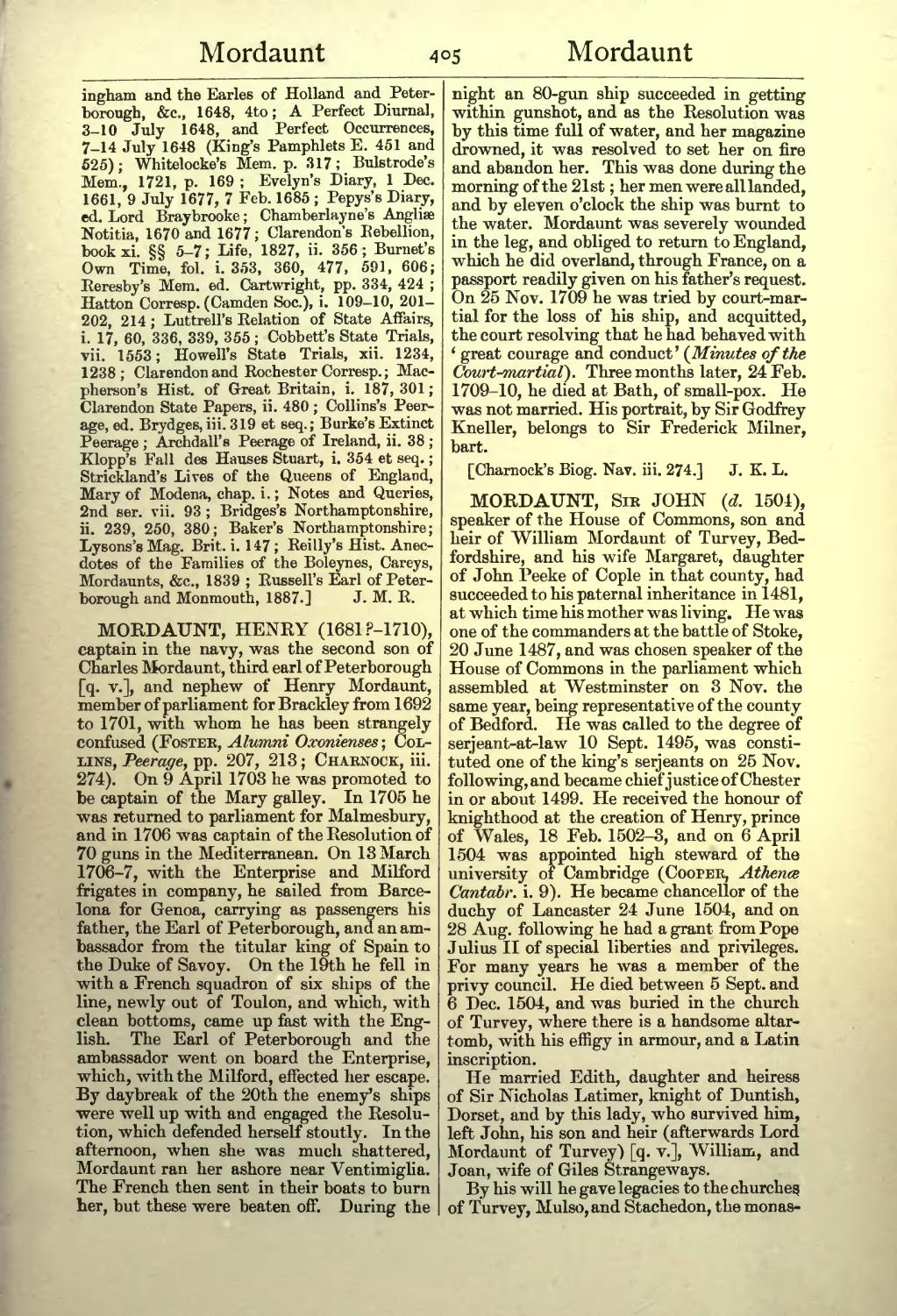ingham and the Earles of Holland and Peterborough, &c., 1648, 4to; A Perfect Diurnal, 3-10 July 1648, and Perfect Occurrences, 7-14 July 1648 (King's Pamphlets E. 451 and 525); Whitelocke's Mem. p. 317; Bulstrode's Mem., 1721, p. 169; Evelyn's Diary, 1 Dec. 1661, 9 July 1677, 7 Feb. 1685; Pepys's Diary, ed. Lord Braybrooke; Chamberlayne's Angliæ Notitia, 1670 and 1677; Clarendon's Rebellion, book xi. §§ 5-7; Life, 1827, ii. 356; Burnet's Own Time, fol. i. 353, 360, 477, 591, 606; Reresby's Mem. ed. Cartwright, pp. 334, 424; Hatton Corresp. (Camden Soc.), i. 109-10, 201-202, 214; Luttrell's Relation of State Affairs, i. 17, 60, 336, 339, 355; Cobbett's State Trials, vii. 1553; Howell's State Trials, xii. 1234, 1238; Clarendon and Rochester Corresp.; Macpherson's Hist. of Great Britain, i. 187, 301; Clarendon State Papers, ii. 480; Collins's Peerage, ed. Brydges, iii. 319 et seq.; Burke's Extinct Peerage; Archdall's Peerage of Ireland, ii. 38; Klopp's Fall des Hauses Stuart, i. 354 et seq.; Strickland's Lives of the Queens of England, Mary of Modena, chap. i.; Notes and Queries, 2nd ser. vii. 93; Bridges's Northamptonshire, ii. 239, 250, 380; Baker's Northamptonshire; Lysons's Mag. Brit. i. 147; Reilly's Hist. Anecdotes of the Families of the Boleynes, Careys, Mordaunts, &c., 1839; Russell's Earl of Peterborough and Monmouth, 1887.]
MORDAUNT, HENRY (1681?–1710), captain in the navy, was the second son of Charles Mordaunt, third earl of Peterborough [q. v.], and nephew of Henry Mordaunt, member of parliament for Brackley from 1692 to 1701, with whom he has been strangely confused (Foster, Alumni Oxonienses ; Collins, Peerage, pp. 207, 213; Charnock, iii. 274). On 9 April 1703 he was promoted to be captain of the Mary galley. In 1705 he was returned to parliament for Malmesbury, and in 1706 was captain of the Resolution of 70 guns in the Mediterranean. On 13 March 1706-7, with the Enterprise and Milford frigates in company, he sailed from Barcelona for Genoa, carrying as passengers his father, the Earl of Peterborough, and an ambassador from the titular king of Spain to the Duke of Savoy. On the 19th he fell in with a French squadron of six ships of the line, newly out of Toulon, and which, with clean bottoms, came up fast with the English. The Earl of Peterborough and the ambassador went on board the Enterprise, which, with the Milford, effected her escape. By daybreak of the 20th the enemy's ships were well up with and engaged the Resolution, which defended herself stoutly. In the afternoon, when she was much shattered, Mordaunt ran her ashore near Ventimiglia. The French then sent in their boats to burn her, but these were beaten off. During the night an 80-gun ship succeeded in getting within gunshot, and as the Resolution was by this time full of water, and her magazine drowned, it was resolved to set her on fire and abandon her. This was done during the morning of the 21st; her men were all landed, and by eleven o'clock the ship was burnt to the water. Mordaunt was severely wounded in the leg, and obliged to return to England, which he did overland, through France, on a passport readily given on his father's request. On 25 Nov. 1709 he was tried by court-martial for the loss of his ship, and acquitted, the court resolving that he had behaved with 'great courage and conduct' (Minutes of the Court-martial}. Three months later, 24 Feb. 1709-10, he died at Bath, of small-pox. He was not married. His portrait, by Sir Godfrey Kneller, belongs to Sir Frederick Milner, bart.
[Charnock's Biog. Nav. iii. 274.]
MORDAUNT, Sir JOHN (d. 1504), speaker of the House of Commons, son and heir of William Mordaunt of Turvey, Bedfordshire, and his wife Margaret, daughter of John Peeke of Cople in that county, had succeeded to his paternal inheritance in 1481, at which time his mother was living. He was one of the commanders at the battle of Stoke, 20 June 1487, and was chosen speaker of the House of Commons in the parliament which assembled at Westminster on 3 Nov. the same year, being representative of the county of Bedford. He was called to the degree of serjeant-at-law 10 Sept. 1495, was constituted one of the king's Serjeants on 25 Nov. following, and became chief justice of Chester in or about 1499. He received the honour of knighthood at the creation of Henry, prince of Wales, 18 Feb. 1502-3, and on 6 April 1504 was appointed high steward of the university of Cambridge (Cooper, Athenæ Cantabr. i. 9). He became chancellor of the duchy of Lancaster 24 June 1504, and on 28 Aug. following he had a grant from Pope Julius II of special liberties and privileges. For many years he was a member of the privy council. He died between 5 Sept. and 6 Dec. 1504, and was buried in the church of Turvey, where there is a handsome altar-tomb, with his effigy in armour, and a Latin inscription.
He married Edith, daughter and heiress of Sir Nicholas Latimer, knight of Duntish, Dorset, and by this lady, who survived him, left John, his son and heir (afterwards Lord Mordaunt of Turvey) [q. v.], William, and Joan, wife of Giles Strangeways.
By his will he gave legacies to the churches of Turvey, Mulso,and Stachedon, the monas-
